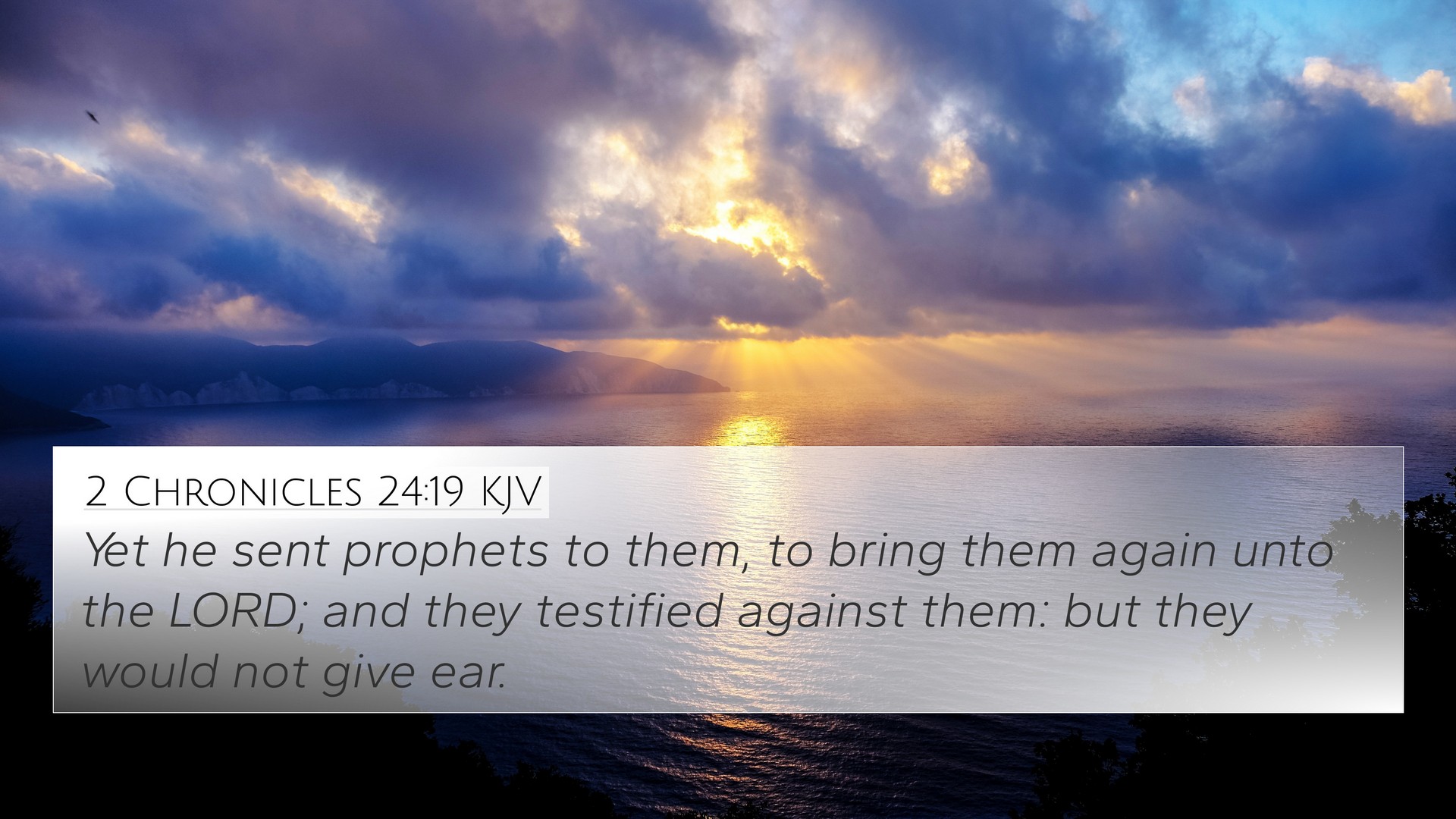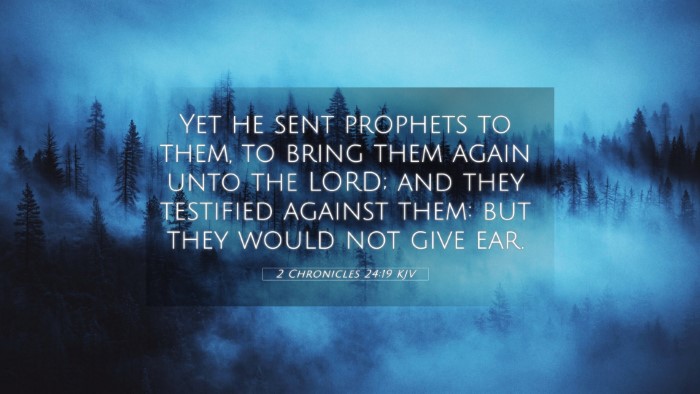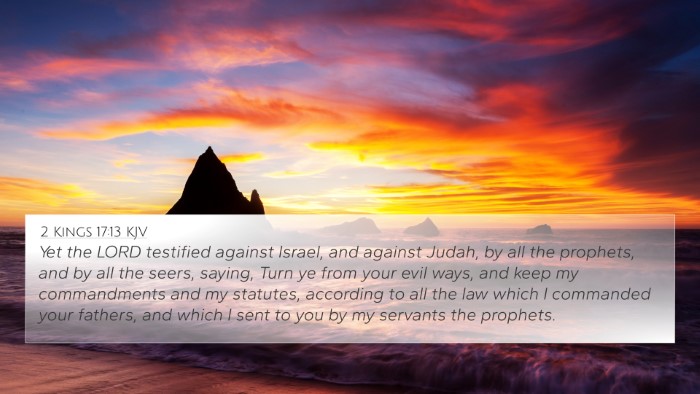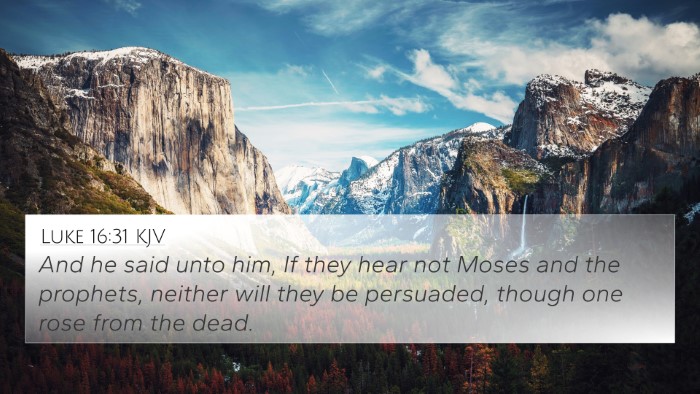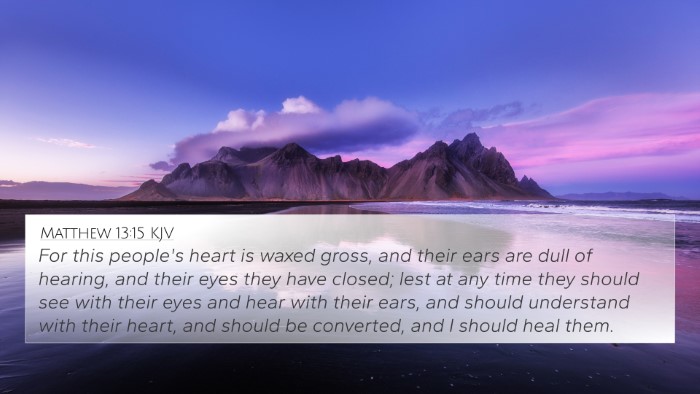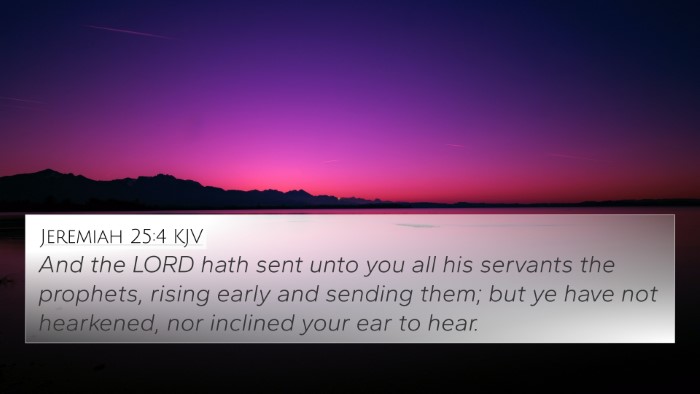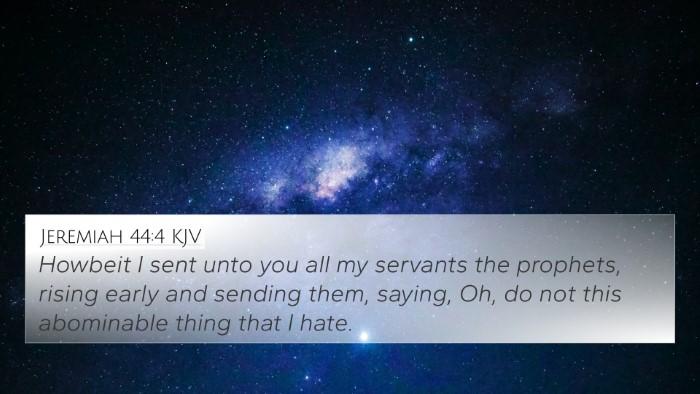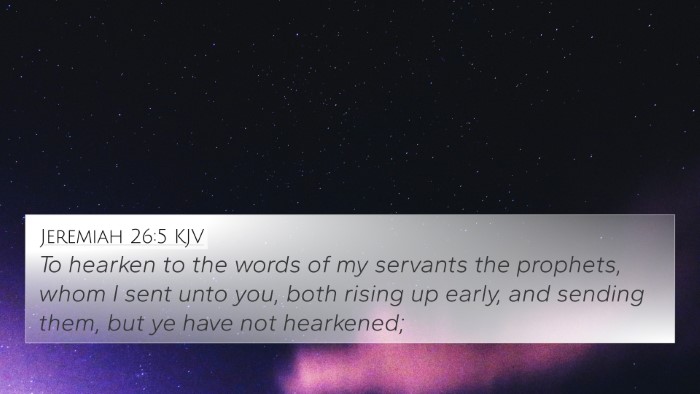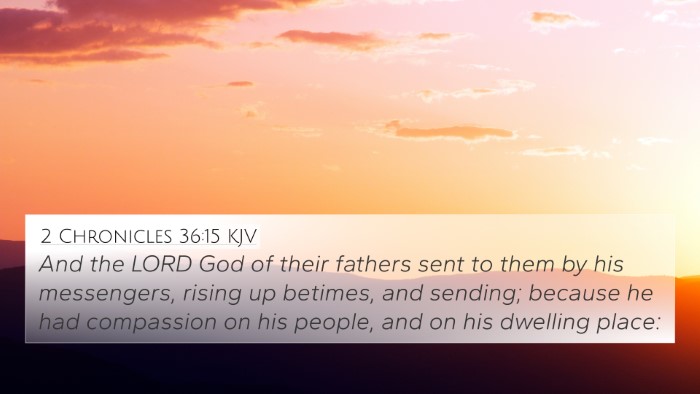Understanding 2 Chronicles 24:19
Verse: "Yet he sent prophets to them, to bring them again unto the LORD; and they testified against them: but they would not give ear." (2 Chronicles 24:19, KJV)
This verse highlights God's continual efforts to call His people back to repentance through the prophets. The overarching theme of God's mercy and the human inclination toward rebellion is evident.
Summary of Insights
The public domain commentaries provide valuable insights that reveal the heartfelt nature of God's outreach and the stubbornness of human hearts. Below are key interpretations from notable commentaries.
Matthew Henry's Commentary
Matthew Henry emphasizes that God's actions are rooted in His compassion. He remarks that despite the disobedience of the people, God remains steadfast in His desire to restore them. Sending prophets signifies God's commitment to guiding His people and giving them opportunities for repentance. Henry underscores that this passage demonstrates the persistence of divine grace even in the face of human rejection.
Albert Barnes' Notes
Albert Barnes provides a somber reflection on the consequences of ignoring God's call. He suggests that the rejection of the prophets is a critical turning point for Israel, illustrating the seriousness of dismissing divine warnings. Barnes connects this to the greater narrative of Israel's cycle of sin and repentance, highlighting a historical pattern where God sends messengers, and the people fail to heed them.
Adam Clarke's Commentary
Adam Clarke elaborates on the nature of the prophets sent by God, indicating that these were not merely individuals but served as a divine voice urging the nation to return to their covenant relationship with Him. Clarke notes the importance of their message and how it reflects God's mercy. He also suggests that the unwillingness of the people to listen leads to dire consequences, further emphasizing the critical need for responsive hearts.
Key Themes and Lessons
- Divine Persistence: God's relentless pursuit of His people despite their rejection.
- Human Rebellion: The innate tendency of humanity to turn away from divine guidance.
- Call to Repentance: The role of prophets as instruments of God's mercy and calls to return.
- Consequences of Rejection: Ignoring God's messengers leads to spiritual depravity and moral decline.
- Restoration: The possibility of returning to God indicates the hopeful nature of repentance.
Bible Verse Cross-References
This verse connects with multiple other scriptures that highlight similar themes of God's message through prophets and the people's response:
- 2 Kings 17:13: "Yet the LORD testified against Israel, and against Judah, by all the prophets, and by all the seers..."
- Jeremiah 7:25: "Since the day that your fathers came forth out of the land of Egypt unto this day I have even sent unto you all my servants the prophets..."
- Ezekiel 33:11: "Say unto them, As I live, saith the Lord GOD, I have no pleasure in the death of the wicked; but that the wicked turn from his way and live..."
- Matthew 23:37: "O Jerusalem, Jerusalem, thou that killest the prophets, and stonest them which are sent unto thee..."
- Luke 13:34: "O Jerusalem, Jerusalem, which killest the prophets, and stonest them that are sent unto thee..."
- Hebrews 1:1-2: "God, who at sundry times and in divers manners spake in time past unto the fathers by the prophets, hath in these last days spoken unto us by his Son..."
- Acts 7:51-52: "Ye stiffnecked and uncircumcised in heart and ears, ye do always resist the Holy Ghost: as your fathers did, so do ye."
Thematic Bible Verse Connections
Understanding 2 Chronicles 24:19 allows us to identify broader connections in scripture:
- Covenant Faithfulness: God's commitment to His covenant people even amidst their rebellion, as seen in Deuteronomy 30:2.
- Prophetic Voices: Recognition of God's continued sending of prophets throughout biblical history provides insight into God's ongoing communication, as noted in Isaiah 1:18.
- Human Nature: The tendency to resist God's pleas stands true from the Old Testament to the New Testament, manifested in Romans 1:21.
Scriptural Cross-Referencing Techniques
For those interested in exploring how to find cross-references in the Bible, consider these tools:
- Utilizing a Bible concordance for word searches.
- Employing a Bible cross-reference guide to identify related verses.
- Engaging in cross-referencing Bible study methods to deepen understanding.
Conclusion
2 Chronicles 24:19 serves as a poignant reminder of divine mercy amidst human indifference. By exploring the connections between this scripture and others, believers can gain richer insights into God's nature and our responses to His call. The study of related verses helps illuminate the truth that God's desire is always for reconciliation and restoration, despite our failings.
